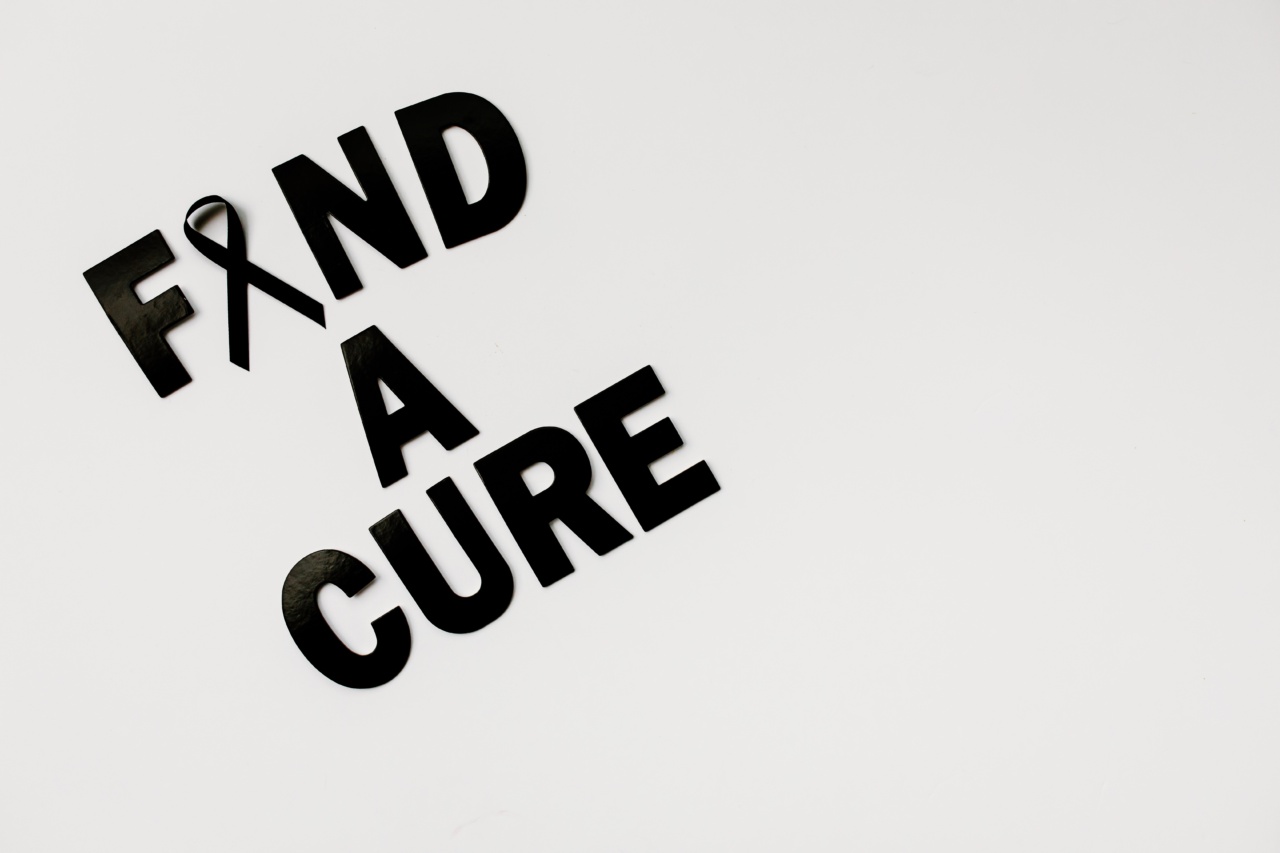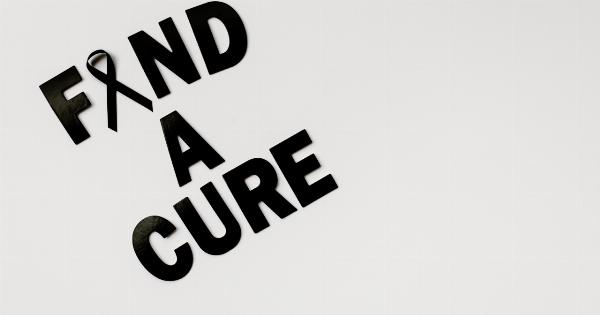Cancer is a serious health condition that affects millions of people worldwide. It is crucial to recognize the early warning signs of cancer in men as early diagnosis can significantly improve the chances of successful treatment.
Identifying these signs and seeking medical attention promptly can potentially save lives. In this article, we will discuss the most common early warning signs of cancer in men.
1. Unexplained Weight Loss
Rapid and unexplained weight loss is often an early sign of various types of cancers in men. This unintentional weight loss can occur even when a person is consuming a normal diet.
If you find yourself losing weight without trying, it is essential to consult a healthcare professional for further evaluation.
2. Persistent Fatigue
Feeling excessively tired or fatigued, despite getting adequate rest, is another sign that men should not ignore. Fatigue can be associated with various types of cancer, including prostate, lung, and colorectal cancer.
If you experience persistent fatigue, it is advised to undergo a thorough medical examination to rule out any underlying health issues.
3. Changes in the Testicles
Testicular cancer is most common in young and middle-aged men. Regular self-examination and early detection are crucial to ensuring successful treatment.
Any changes in the size, shape, or texture of the testicles should be promptly reported to a healthcare professional. Additionally, lumps or nodules in the testicles can also be signs of testicular cancer and should not be disregarded.
4. Persistent Pain and Discomfort
Men should pay attention to any persistent pain or discomfort in their bodies. This includes any unexplained headaches, back pain, bone pain, or abdominal pain.
While these symptoms may not always indicate cancer, it is essential to consult a healthcare provider to determine the underlying cause and receive appropriate treatment.
5. Changes in the Skin
Changes in the skin can be early indications of several types of cancer. Men should be mindful of any changes in existing moles or the appearance of new moles.
Additionally, skin changes such as darkening, yellowing, redness, or excessive hair growth should not be ignored. If you notice any unusual skin changes or growths, seek medical advice promptly.
6. Persistent Cough
A chronic cough that persists for several weeks or a cough that gets worse over time can be a sign of lung cancer. It is crucial to be aware of any blood in the cough, chest pain, or wheezing.
It is advised to consult a healthcare professional if you experience any of these symptoms to determine the cause and receive appropriate medical attention.
7. Changes in Bowel or Bladder Habits
Changes in bowel habits, such as persistent diarrhea, constipation, or narrow stools, can be signs of colorectal cancer. Similarly, changes in bladder habits, including frequent urination, blood in urine, or a weak urine flow, should not be ignored.
If you experience these changes, it is essential to undergo proper medical evaluation to identify the cause.
8. Difficulty Swallowing
Difficulty or pain while swallowing can be indicative of esophageal or throat cancer. It is important to seek medical advice if you encounter persistent swallowing problems, especially if accompanied by weight loss or vomiting.
9. Changes in the Prostate
Prostate cancer is one of the most common cancers in men. Men should be aware of changes in their prostate, including difficulty urinating, weak urine flow, or blood in the urine or semen.
Regular check-ups with a healthcare provider and appropriate screenings are vital for early detection and treatment of prostate cancer.
10. Changes in the Breast Tissue
Although rare, breast cancer can also affect men. Any changes in the breast tissue, including lumps, swelling, nipple discharge, or inversion, should be promptly evaluated by a healthcare professional.
Early diagnosis and treatment can significantly improve the outcomes of breast cancer in men.




























